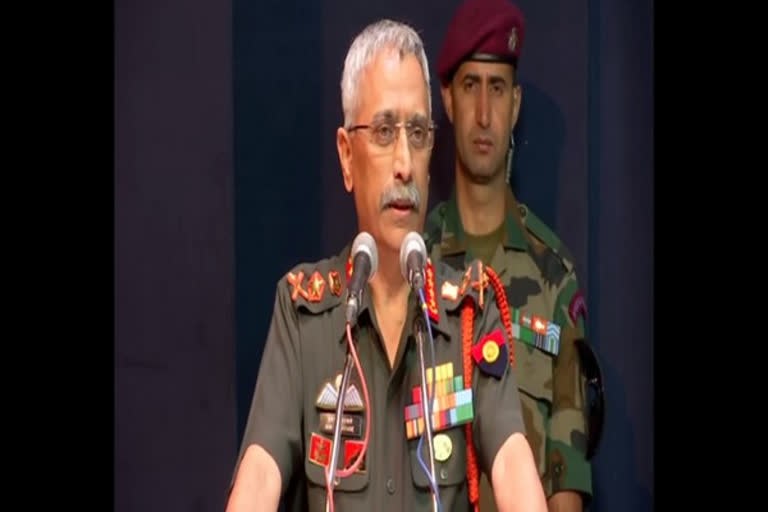Pune (Maharastra): The education of Indian military leaders of the past suffered because of a lack of chronicled history as they could not learn from the mistakes of their predecessors, Army Chief General Manoj Naravane said here on Saturday.
He was speaking at the launch of 'Ya Sam Ha' (One and Only), a Marathi book on Bajirao Peshwa I written by Major General Shashikant Pitre (retd).
"The purpose of military history is to learn from the mistakes of the past. There are always historical parallels and it is for us to recognise those," General Naravane said.
The study of military history is not a panacea, but it can certainly give "insights and provide inputs for some decision making", he said.
Military history helps one understand why some leaders succeeded and others failed, the Army chief said.
"Probably those leaders who succeed are the ones who learned the lessons from history and therefore avoided the mistakes," he said.
India had many dynasties and empires, "however, we have been very poor chroniclers of history," Gen Naravane said.
"We have a tradition of ballads or oral history...
what was missing was analytical insights of what actually happening on the ground," he said. "....in the absence of such well-chronicled history, the education of the military leaders has suffered...
Repeatedly we committed the same errors leading to the same outcome. It is in this context, this extremely well-researched book by Major General Pitre fills a very crucial gap," he said.
Bajirao, the 18th century Maratha statesman-military leader who is said to have remained undefeated throughout his career had an uncanny ability to select a suitable place and "then orchestrate the battle and channelise the enemy into that pre-selected killing ground", the Army chief added.
(With inputs from ANI and PTI)
Also Read: Man opens fire in Shaheen Bagh area, no casualty reported



